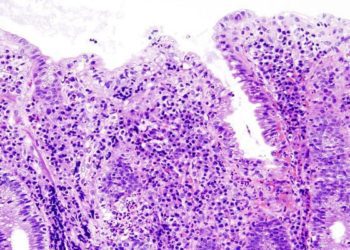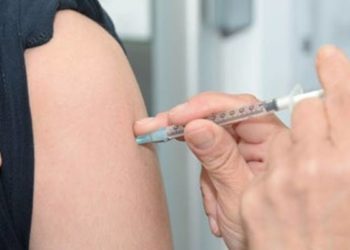Intensive blood pressure control reduces major cardiovascular event risk in type 2 diabetes patients
1. In this parallel design, randomized trial, intensive treatment of systolic blood pressure (SBP) resulted in a lower incidence of major cardiovascular events compared to standard treatment.
2. The incidence of serious adverse events was similar in the intensive and standard treatment groups.
Evidence Rating Level: 1 (Excellent)
Study Rundown: Current guidelines recommend decreasing blood pressure in hypertensive patients with type 2 diabetes, however, the reduction targets in this population are unclear. This parallel-design, randomized clinical trial investigated whether intensive treatment targeting a SBP of less than 120mmHg would be more effective than standard treatment targeting a SBP of less than 140mmHg in reducing the risk of major cardiovascular disease events in patients with type 2 diabetes. Patients who met eligibility criteria were randomly assigned to receive intensive treatment that targeted an SBP of less than 120mmHg or standard treatment that targeted an SBP of less than 140mmHg for up to five years. The primary outcome of this study was a composite measure of nonfatal stroke, nonfatal myocardial infarction, treatment or hospitalization for heart failure, or death from cardiovascular causes. The results from this study found that the incidence of major cardiovascular events was significantly lower amongst patients in the intensive treatment group in comparison to those with standard treatment. The incidence of serious adverse events was similar between groups. Limitations of this trial included the lack of blinding, the use of telephone interviews for data collection, the variability in the diastolic blood pressure between groups, and the fact that only 60% of patients in the intensive treatment group met the target SBP after one year.
Click here to read the study in NEJM
In-Depth [randomized controlled trial]: This parallel-design, randomized clinical trial investigated whether intensive blood pressure control would be more effective than standard treatment at reducing the risk of major cardiovascular disease events in patients with type 2 diabetes. Patients living in China who were 50 years of age or greater with type 2 diabetes, elevated SBP between 130mmHg and 180mmHg, and an increased risk of cardiovascular disease were eligible for this trial. A total of 12,821 patients were randomly assigned to receive either intensive treatment that targeted a SBP of less than 120mmHg or standard treatment that targeted a SBP of less than 140mmHg for up to five years. After randomization, the antihypertensive regimens of the patients were adjusted based on their blood pressure levels to achieve the SBP targets of their assigned group. The primary outcome of this trial was a composite of nonfatal stroke, nonfatal myocardial infarction, treatment or hospitalization for heart failure, or death from cardiovascular causes. At the one year follow up, results found that the mean SBP was 121.6mmHg in the intensive treatment group and 133.2mmHg in the standard treatment group. During a median follow-up of 4.2 years, the primary outcome was observed in 393 patients in the intensive treatment group and 492 patients in the standard treatment group (hazard ratio, 0.79; 95% confidence interval, 0.69 to 0.90; p<0.001). The incidence of serious adverse events was similar between groups. Overall, the results from this study found that the incidence of cardiovascular events was significantly lower with intensive treatment targeting a SBP of less than 120mmHg than with standard treatment that targeted a SBP of less than 140mmHg among patients with type 2 diabetes.
Image: PD
©2025 2 Minute Medicine, Inc. All rights reserved. No works may be reproduced without expressed written consent from 2 Minute Medicine, Inc. Inquire about licensing here. No article should be construed as medical advice and is not intended as such by the authors or by 2 Minute Medicine, Inc.









